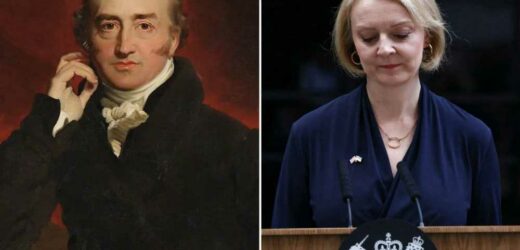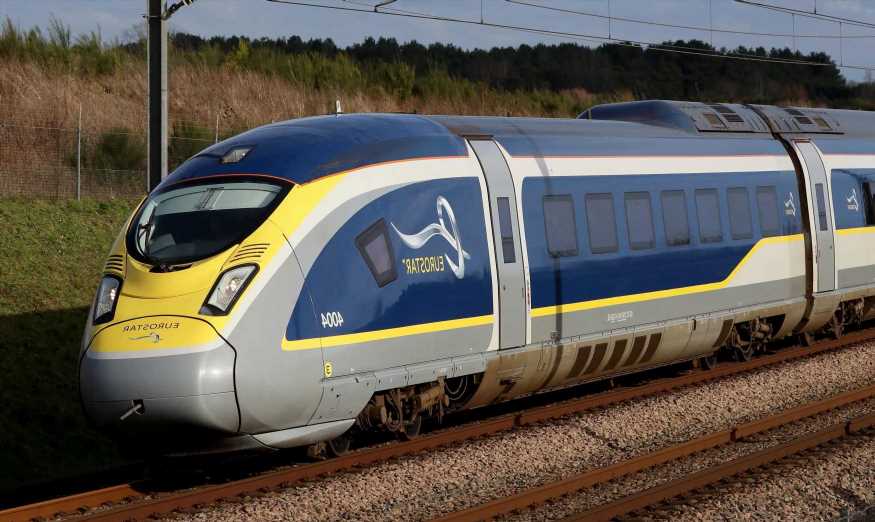LIZ Truss will become the shortest-serving Prime Minister in British history by 74 days.
The fallen Tory leader's 44 days in office is more than two months short of George Canning's 118 days.
The fellow Tory's time in office was cut short when he died from tuberculosis in 1827. Ms Truss would have overtaken him on January 3.
Her time in office also included a ten-day national mourning period for the Queen's death, when politics was paused.
She resigned today after losing the confidence of her own MPs and the markets during a period of economic turmoil and U-turns.
It means King Charles is already set for his second Prime Minister just six weeks after ascending to the throne.
READ MORE ON TRUSS RESIGNING
Liz Truss RESIGNS as Prime Minister after 44 days in power
Rishi ‘will stand’ in Tory leadership race as Truss quits – but Hunt pulls out
And the country is facing its third Prime Minister in four months.
A Tory leadership contest is set to be fast-tracked to be completed by next Friday. Party members are expected to be included in the process.
The other shortest serving Prime Ministers include Frederick John Robinson's 144 days, Andrew Bonar Law's 211 days and William Cavendish's 225 days.
And last week Truss sacked humiliated Kwasi Kwarteng over their chaotic mini-budget. It made him our second-ever shortest serving Chancellor.
Britain’s shortest serving Prime Ministers
Liz Truss – 44 days (began 2022) – resigned
George Canning – 119 days (began in 1827) – died
Frederick John Robinson aka Viscount of Goderich – 144 days (began 1827) – repalced
Andrew Bonar Law – 211 days (began 1922) – illness
William Cavendish aka Duke of Devonshire – 225 days (began 1756) – replaced
William Petty Fitzmaurice aka Earl of Shelburne – 266 days (began 1782) – replaced
John Stuart aka Earl of Bute – 317 days (began 1762) – replaced
Sir Alec Douglas-Home – 363 days (began 1963) – election
William Grenville aka the Lord Grenville 1 year 42 days (began 1806)- replaced
Augustus Henry Fitzroy aka Duke of Grafton – 1 year 106 days (began 1768) – resigned
Archibald Philip Primrose aka Earl of Rosebery – 1 year 109 days (began 1894) – election
Ms Truss said today outside No10 Downing Street that she was elected on a mandate to change "a time of great economic and international instability".
But she admitted: "I recognise, given the situation, I cannot deliver the mandate on which I was elected by the Conservative Party."
Rishi Sunak, Penny Mordaunt and Ben Wallace and the frontrunners to be the next PM, according to the bookies.
Chancellor Jeremy Hunt will not be running to replace Truss.
Labour leader Sir Keir Starmer called the situation a "revolving door of chaos" that is damaging Britain's economy and reputation.
Most read in The Sun
Spice Girl joins dating app Hinge after split from long-term partner
1940s beach photo 'proves' time travel is real… can you spot why?
Love Island's Shaughna is pregnant with her first child after six-month romance
Sacked Suella Braverman savages under-fire Liz Truss over 'broken pledges'
Ms Truss was The Queen's final Prime Minister and King Charles' first.
She won a Conservative Party leadership election and was officially appointed PM last month in an audience with Her Majesty.
Her first audience with the King at Buckingham Palace was three days later on September 9, the day after the Queen died.
Ms Truss had promised a "bold plan" to cut taxes and grow the economy and "deliver on the energy crisis".
Read More on The Sun
Coronation Street legend to dramatically return to the cobbles after 12yrs
I hated having big boobs so I made a clothing company for larger chested women
But the mini-budget, unveiled four days after the Queen's funeral, with its plans to abolish the top rate of income tax for the highest earners sent the markets into turmoil.
Ms Truss insisted she stood by the package but in the end sacked her chancellor, Kwasi Kwarteng, whose successor, Jeremy Hunt, ripped up the controversial budget by reversing most of the measures.
Source: Read Full Article













